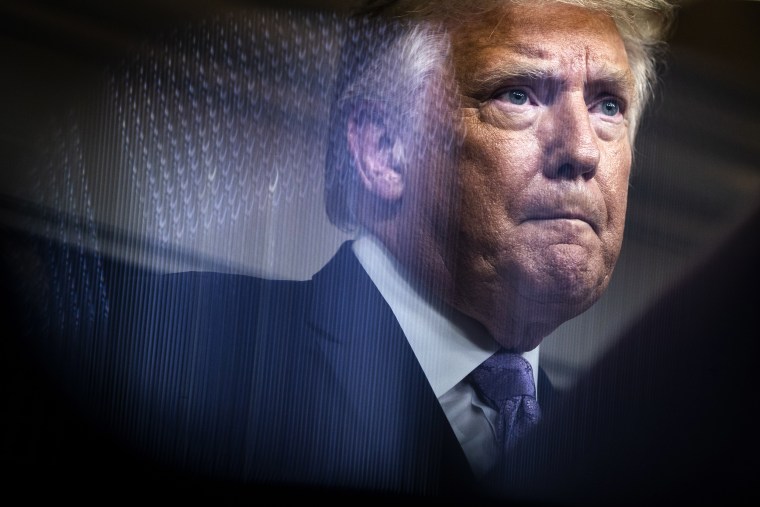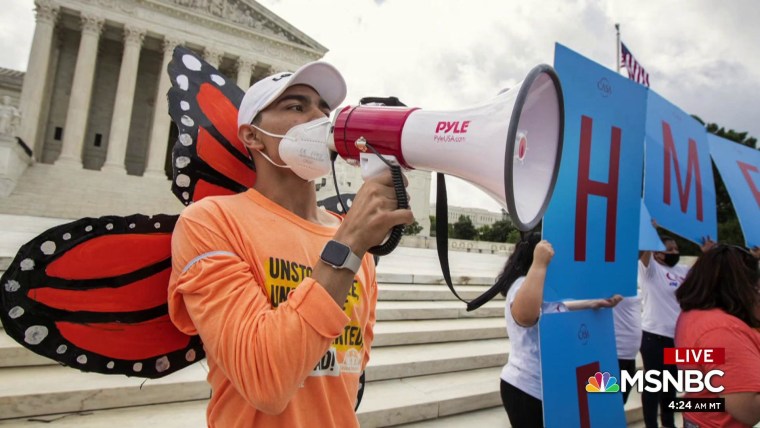|
Donald Trump's plot against democracy could break America apart
Even some conservatives fear a power grab might trigger the disintegration of the US. It's happened to superpowers before
We know that US democracy is on the line this November, but what about the United States itself? Is it possible that not only America's democratic health hangs in the balance, but the very integrity of the country?
Such talk sounds hyperbolic, but start with the danger to the US democratic system that becomes more clear and present each day. This week Donald Trump was asked if he would commit to a peaceful transfer of power in the event of his defeat. His reply: "Well, we're going to have to see what happens."
Later the White House clarified that of course the president would accept the results of a "free and fair election". But that formulation contained an implied caveat: what if he decides that the election was not "free and fair"? After all, Trump has said repeatedly that if Joe Biden wins, that can only mean that the election was "rigged".
How this might unfold was laid out this week in a chilling essay by Barton Gellman in the Atlantic headlined The Election That Could Break America. Many of the dangers are by now familiar. Aware that polls show them unable to win a straight contest, Republicans are already working hard to un-level the playing field. They have purged electoral rolls of likely Democratic voters. They have hobbled the Post Office, to prevent mail-in ballots – which are likely to favour Democrats – arriving in time.
Once the polls close, Team Trump will claim only the in-person votes, tallied on election night – and likely to skew towards Republicans – should qualify. They will try to stop the votes being counted, whether by lawsuit or by physical disruption (a tactic deployed successfully in the infamous Florida recount of 2000). As Gellman argues, it's not just that Trump will refuse to concede defeat: he'll use all the power at his disposal to "obstruct the emergence of a legally unambiguous victory for Biden", even to "prevent the formation of a consensus about whether there is any outcome at all".
There is one trick up Republican sleeves so outrageous that no one had even contemplated it until now. It's technical, but bear with me. The president is chosen by an electoral college, made up of electors from all 50 states. For more than a century, those electors have been chosen to reflect the winner of the popular vote in that state. But Republican officials have noted that there's nothing in the constitution that says it has to be that way. The legislatures – the mini-parliaments of each state – have the power to choose the electors themselves. And guess what: Republicans control the legislatures in the six most hotly fought battleground states. If they declare that the official vote tally showing Biden the winner is unreliable – on the grounds that, as Trump says, all postal votes are suspect – there is nothing to stop them choosing a slate of pro-Trump electors instead, claiming this reflects the true will of the people of their state.
It sounds like a Lukashenko manoeuvre, a coup against democracy – and that's exactly what it would be. And yet there are Republican party officials talking on the record of how they are contemplating that very move.
Ah, but surely the supreme court would never allow such a thing. And yet, as of last week, there is a vacancy on that court. Trump plans to replace Ruth Bader Ginsburg at speed, aiming to seat his own handpicked judge in time to settle any election-related cases in his favour. That too he says out loud. Again, the Belarusian reek is unmistakable.
The trouble is, Democrats are all but powerless to stop a president and a party that has no shame in smashing through every democratic guardrail regardless of the hypocrisy: recall that, in March 2016, Senate Republicans refused to give Barack Obama's supreme court pick so much as a hearing, insisting it was unconscionable to make such an appointment in an election year. Yet here they are, ramming their choice through a matter of weeks before polling day.
The result is that soon there will be a 6-3 rightwing majority on the US's highest court, ready to overturn landmark decisions on healthcare or reproductive rights, and to thwart action on the climate crisis. What's more, a seat on the supreme court is for life, and several of these rightwing judges are relatively young. That 6-3 majority could be in place for decades.
So now a dark question arises. What will the US's increasingly progressive majority do if Republican state officials reinstall Trump in the White House, in defiance of the voters? What will they do if that 6-3 court overturns Roe v Wade and bans abortion across the entire country?
Think for a second how that latter situation will have arisen: it is because the Senate picks the judges, and the Senate enshrines minority rule. With two senators per state, tiny Wyoming (population: 600,000) has the same representation as gargantuan California (40 million). On current trends, 70% of Americans will soon have just 30 senators representing them, while the 30% minority will have 70. When it comes to their right to medical treatment or to rid their streets of military-grade assault weapons, the urban, diverse majority are subject to the veto of the rural, white, conservative minority.
How long is that sustainable? How long will a woman in, say, California accept the presence of guns and the absence of abortion rights because that's what a minority of voters in small, over-represented states wants? Serious people are beginning to ask that question. Gary Gerstle, professor of American history at Cambridge University, says he's found himself reading about countries that once had democracy but lost it – and that he's doing that "to understand the future of America".
He wonders if progressive, "blue" states might increasingly go their own way – flexing their right to deviate from the federal government, as branches of it move ever further out of democratic reach. As we spoke, New York governor Andrew Cuomo announced that he will not accept any federally approved Covid vaccine for his state until New York experts have tested it first. That, says Gerstle, could be a harbinger of things to come, including perhaps a revival of the pre-civil-war concept of "nullification", whereby dissenting states declare decisions made in Washington null and void. It would be a historic turnaround for the American left: "states' rights" was the rallying cry of the segregationist south, asserting their right to be racist. Now it could become the weapon of liberal America.
In a new book, Divided We Fall, the conservative writer David French raises the once-taboo question of "America's secession threat" – imagining, for example, a "Calexit" as California leads a breakaway of liberal western states after a rightwing supreme court has struck down a California law to curb guns. Since Ginsburg's death, that reads less like dystopian fiction than a forecast.
Such talk might seem fanciful. Yet there was probably a similar reaction to Andrei Amalrik's 1970 essay Will the Soviet Union Survive Until 1984?. At the time, it must have sounded absurd: of course the USSR was here to stay. But Amalrik was not far off. Twenty-one years after he had asked the question, a once mighty superpower lay in pieces. Oceans rise, empires fall – and even America is not immune.
• Jonathan Freedland is a Guardian columnist
• Who'll win the race for the White House? Join Guardian journalists Jonathan Freedland, Daniel Strauss, Lauren Gambino and Richard Wolffe for an online Guardian Live event, on Tuesday 20 October, 7pm. Book tickets here
|













